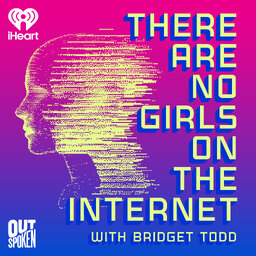Digital rapper FN Meka and the new era of digital Blackface
"AI rapper" FN Meka isn't human - he's a digital creation of a company. But that didn't stop him from getting a record deal! He briefly became the first digital rapper to sign a deal with a major recording company. That is until the entire internet said NOPE. From Lil Miquela to Shudu, let's talk about the complicated history of digital talent.v
In 1 playlist(s)
There Are No Girls on the Internet
Marginalized voices have always been at the forefront of the internet, yet our stories often go over…Social links
Follow podcast
Recent clips

BAFTAs racial slur; Nicki Minaj bot network; TikTok “Psychic” faces Defamation trial for University of Idaho murders – NEWS ROUNDUP!
1:16:39

A TANGOTI Announcement We've Been Sitting On
47:34

Chris Pratt Is Hawking an Anti-Abortion Prayer App; Elon's Grok Is Doxxing Women; DOGE Bros Let ChatGPT Do Their Job; Trump’s Big DEI Loss – NEWS ROUNDUP
1:07:04
 There Are No Girls on the Internet
There Are No Girls on the Internet